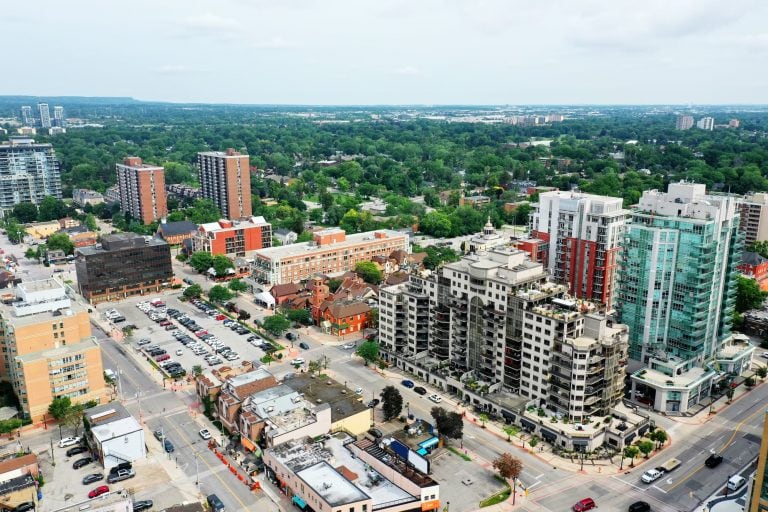Over a fifty-year period, the value of Toronto real estate has appreciated at an explosive rate, even when taking inflation into account. This should come simultaneously as a relief and a warning to investors looking into the Toronto housing market. Because, though Toronto real estate is sure to continue to appreciate throughout the future, the underlying cause of that appreciation might wind up reshaping the housing market in the years to come.
There’s no doubt that Toronto (and the Greater Toronto Area in general) is the most-watched real estate market in all of Canada. In fact, the whole world should be paying attention to Toronto real estate for the simple fact that this area is facing a housing supply crisis that most major cities are going to have to deal with at some point in the 21st century.
Let’s take a look at how different sectors of the Toronto real estate market have appreciated over the long term, as well as some underlying factors that have influenced that appreciation, how those factors could soon change, and the possible consequences of those changes.
How Toronto Real Estate Has Appreciated
Detached homes are the most visible representations of a housing market’s wealth. For the past one hundred years, they have been the primary focus of Toronto’s housing development. Over the last twenty years, Toronto homeowners have watched their detached homes increase two-fold in value every ten years.
If you bought a house for $250,000 in 2000 (the median price for a detached home in Toronto at that time), it would now be worth around $1.25 million. Adjust for inflation, and the value is more like $1.1 million. That level of appreciation is astounding. If you sold that house you bought twenty years ago today, you could qualify for a mortgage on almost any luxury home in the Toronto area and still have hundreds of thousands of dollars in cash left over.
Now, it hasn’t been a permanent upward trajectory for detached home values over the last twenty years. For instance, a 2017 mortgage stress test caused the most severe dip in home values in the last thirty years. That stress test effectively cut out a fifth of possible homebuyers from the detached market. This simultaneously made it harder for new home buyers to own a detached house and also caused home prices to fall to compensate for the sudden drop in the buyer pool. In the wake of this fallback, it took Toronto’s detached homes three years to return to their 2017 values.
During that interim period, Toronto homeowners, on average, saw their homes lose about $100,000 in value. Spread over a five year period though, from 2016 to 2021, their homes gained $400,000 in value. What we’re trying to demonstrate here is vital: Toronto real estate is a long game.
Time is on your side as a homeowner. From year to year, the market is going to fluctuate, sometimes subtly, sometimes drastically. But just like a river that bends miles out its way on its path to the sea, Toronto real estate ultimately continues to appreciate. If you’re patient and willing to wait, you’ll be rewarded.
But people talk all the time about how there’s no safer investment in a house. Just because homes have appreciated so much in the past twenty years doesn’t mean they’ll do so for the next twenty. You’re right to be hesitant to go all-in based on history alone, so let’s look at some of the current factors at play in Toronto real estate, factors that are ensuring that homes here keep appreciating at such a high pace.
Why Toronto Real Estate Will Keep Appreciating.
Toronto real estate appreciates for one simple reason: supply and the lack thereof. The demand is there, fueled mostly through immigration both from within Canada and the rest of the world. It’s clear to see that people want to move to Toronto. But when they come to Toronto, they have to live somewhere and, for a variety of reasons, they find that their options are limited ultimately by supply.
Whether for townhomes, condos, apartments, or detached houses, demand for housing in Toronto has not waned in the last few decades and almost assuredly will remain steady in the decades to come. The housing supply just cannot keep up. When supply cannot meet demand, prices rise; that’s just basic economics. The extreme increase in price for detached homes in Toronto over the last ten years is primarily the result of high demand and a severe lack of supply.
Why is there a lack of supply in Toronto?
The answer to this question lies in time and space.
Time
It takes years to build houses and condos in Toronto, but it only takes a day for one person to move to Toronto. Developers of detached houses, condos, townhomes, everything, have to spend months getting their new constructions permitted by government authorities. This delay in construction worsens the supply problem.
In addition to time costs, developers also have to pay increasingly higher fees to put new housing into Toronto. This limits the number of developers in the GTA who are willing or able to put in the time and capital into building new housing. Hence: lack of supply.
Space
The space problem is much harder to solve than the time problem. Simply put: Toronto is running out of land.
Already the Greater Toronto Area extends 30 and even 40 kilometres out from the city centre. The majority of this land is developed into single-family detached suburbs, not high-density condo blocks. For the last sixty years, this suburb situation has been great for homeowners who want to live affordably in a nice, open neighbourhood relatively close to downtown. Looking to the future, the days of those sprawling suburbs seem nigh.
Toronto cannot expand indefinitely. At a certain point, suburbs become their own cities and break away from the centre. This is already happening in U.S. cities like Atlanta, Georgia, which is also experiencing intense growth and seeing its greater suburbs secede from the center. This means that there is a limit to what a city can effectively manage, and for many people watching the GTA’s real estate market, Toronto has run up against that limit.
Already some developers have seen the writing on the wall. In order to make space for high-density condos, they’ve demolished old detached homes that have been such a mainstay of Toronto’s character for the last hundred years. Understandably, many citizens have spoken out against this process of “condo-fication” in their city. And who can blame them?
Don’t make the mistake of seeing this problem as a question of condos vs. detached houses. It’s not that simple. The fact is that people want to live in Toronto, and they’re willing to pay to do it. It doesn’t matter if they want to live in a condo or a detached house, there’s not enough of either of them to meet the demand, and Toronto is rapidly running out of new space for more of either to be built.
Somethings got to give. Either Toronto could try to limit the number of people immigrating into the GTA (something highly unlikely and probably economically disastrous) or focus on developing high condos in otherwise low-density suburban neighbourhoods.
What does this mean for Real Estate Appreciation in Toronto?
We expect to see detached home values continue to appreciate as supply continues to contract or, at the very least, fail to meet demand. Even if more Torontonians choose to live in condos rather than move out to the suburbs (as many speculate they might) this still would do nothing to change the two main factors that are limiting detached home supply: the high costs in time and capital for new housing development, and the lack of available physical space.
We’re not proposing that all of the GTA will suddenly become a dystopian city-scape of condo towers. Instead, we think that in the future we will see most neighbourhoods feature a larger share of condos and a lesser share of detached homes. Already most neighbourhoods in Toronto are integrating condos on their main streets, expect this trend to continue.
One mistake you should avoid is thinking that detached home values will depreciate alongside any increase in the supply of condos. Any increase in the supply of condos in Toronto would necessitate a decrease in the detached housing supply, thereby causing detached property values to appreciate even more. A better question to ask for the future would be: “Will the demand for detached homes decrease due to the encroachment of condos? And if so, how will that affect the rate of appreciation for Toronto real estate across the board?”
The rate of real estate appreciation in Toronto is tied directly to the current housing supply. The rate of real estate appreciation in the future is tied directly to how much longer Toronto will push off the decision on whether it wants to continue growing or stay the city it used to be fifty years ago.













